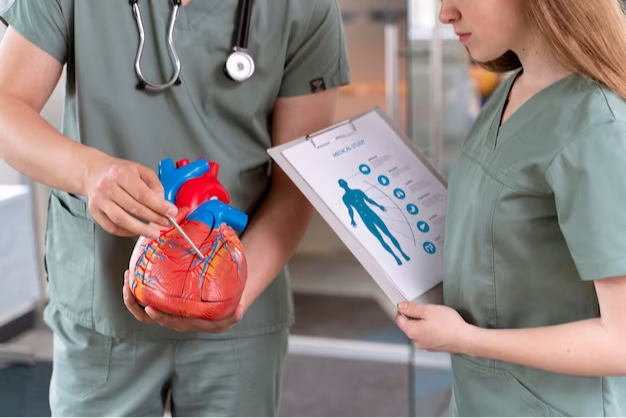Introduction
The field of cardiology is constantly evolving, with new treatments and technologies emerging to better address cardiovascular diseases and improve patient outcomes. In this article, we will explore some of the exciting and promising trends in cardiology, offering hope for more effective treatments and enhanced patient care.
- Telemedicine and Remote Monitoring
- Artificial Intelligence (AI) and Machine Learning
- Wearable Health Tech
- Minimally Invasive Procedures
- Advanced Imaging Technologies
- Personalized Medicine
- Regenerative Medicine
- Targeted Therapies
- Bioelectronic Medicine
Telemedicine and remote monitoring have rapidly gained prominence in cardiology, especially in the wake of the COVID-19 pandemic. These technologies enable healthcare providers to monitor patients' heart health remotely, providing real-time data on vital signs, ECG readings, and symptoms. Telemedicine also allows for virtual consultations, making it easier for patients to access cardiac care, particularly those in remote areas.
AI and machine learning are revolutionizing the field of cardiology. These technologies can analyze vast amounts of patient data, helping identify trends, predict heart disease risk, and personalize treatment plans. AI can assist in interpreting ECGs, detect arrhythmias, and even predict heart attacks, enabling early intervention.
Wearable devices like smartwatches and fitness trackers have expanded their utility to include heart monitoring. They can track heart rate, detect irregular rhythms, and even perform ECGs. Wearable tech provides continuous data, allowing patients and healthcare providers to keep a close eye on heart health between doctor's visits.
Minimally invasive procedures are becoming increasingly popular in cardiology. Techniques like transcatheter aortic valve replacement (TAVR) and percutaneous coronary intervention (PCI) are offering less invasive alternatives to traditional open-heart surgery. These procedures reduce recovery times and the risk of complications.
The field of cardiac imaging is evolving rapidly. Technologies like 3D echocardiography, cardiac MRI, and advanced CT scans provide more detailed insights into heart structure and function. These tools are helping clinicians diagnose heart conditions more accurately and plan for complex interventions.
Personalized medicine is gaining ground in cardiology. Genetic testing and advanced diagnostics can help identify an individual's unique genetic risks for heart disease and guide treatment choices. Tailored medications and interventions can lead to more effective care.
Regenerative medicine is an emerging field that explores the use of stem cells and tissue engineering to repair and replace damaged heart tissue. This offers hope for patients with conditions like heart failure and damaged cardiac muscles.
New drugs and therapies are being developed to target specific aspects of cardiovascular disease, such as cholesterol management, blood pressure control, and anti-inflammatory treatments. Targeted therapies aim to reduce side effects while improving effectiveness.
Bioelectronic medicine is an exciting frontier in cardiology. It involves using electronic devices to stimulate nerves and modulate electrical signals in the body. This approach is being explored for managing heart rhythm disorders and heart failure.
Conclusion
The ever-evolving landscape of cardiology is filled with promising trends and innovations. These advances hold the potential to improve the quality of care, reduce complications, and enhance patient outcomes. As technology continues to advance and our understanding of the cardiovascular system deepens, we can look forward to a future where heart diseases are more effectively prevented, diagnosed, and treated. Cardiology's relentless pursuit of innovation offers hope for better heart health for all.
.pdf%20300X60%20PX-02-02.svg)



